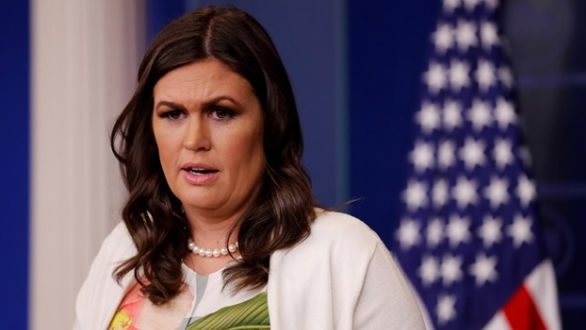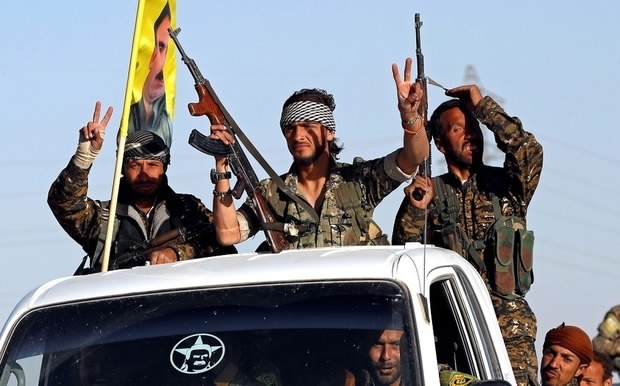
Politics
08:05, 28-Nov-2017
US to reduce, not stop, support to anti-ISIL groups
CGTN

The United States plans to reduce military support for groups fighting ISIL in Iraq and Syria but that does not mean Washington will stop all aid, White House spokeswoman Sarah Sanders said on Monday.
Sanders said with ISIL’s territory shrinking “we’re in a position to stop providing military equipment to certain groups but that doesn’t mean stopping all support of those individual groups.”
On Friday, Turkey said Donald Trump told President Tayyip Erdogan he had issued instructions that weapons should not be provided to Syrian Kurdish fighters, which Ankara views as a threat.
Trump’s decision appeared to catch both the Pentagon and the US State Department off guard.
Officials at both agencies, who would normally be informed of changes in US policy towards arming Syrian Kurds, said they were unaware of any changes.
The officials spoke on condition of anonymity.
It was unclear whether the Trump administration notified the Kurds of the move before telling Ankara. Nor was it clear how significant a change this would have on the ground, considering the fight against ISIL is almost over.

File photo of SDF fighters in Raqqa. /Reuters Photo
File photo of SDF fighters in Raqqa. /Reuters Photo
The United States has been arming the Kurds in their fight against ISIL through an umbrella group known as the Syrian Democratic Forces, or SDF, which is comprised of Kurdish as well as Arab fighters.
But the retreat of ISIL, which has lost nearly all its territory in Syria, has altered the dynamics in the region and a US defense official said he was unaware of any additional arms scheduled to be transferred to the Kurds, even before the Turkish announcement.
As the fight against ISIL has waned in recent months, the US has pledged to carefully monitor the weapons it provides the Kurds, notably ensuring that they don’t wind up in the hands of Kurdish insurgents in Turkey known as the PKK.
Both Turkey and the US consider the PKK a terrorist group. But the United States has tried to draw a distinction between the PKK and the Syrian Kurds across the border, while Turkey insists they’re essentially the same.
In both Syria and Iraq, the US relied on Kurdish fighters to do much of the fighting against ISIL, but those efforts have yet to lead to a realization of the Kurds’ broader aspirations, most notably an independent state.
Washington’s support for the Syrian Kurds, in particular, has been a major thorn in US-Turkish relations for several years, given Turkey’s concerns about the Kurds’ territorial aspirations.
In particular, Turkey has feared the establishment of a contiguous, Kurdish-held canton in northern Syria that runs along the Turkish border.
Source(s): Reuters

SITEMAP
Copyright © 2018 CGTN. Beijing ICP prepared NO.16065310-3
Copyright © 2018 CGTN. Beijing ICP prepared NO.16065310-3